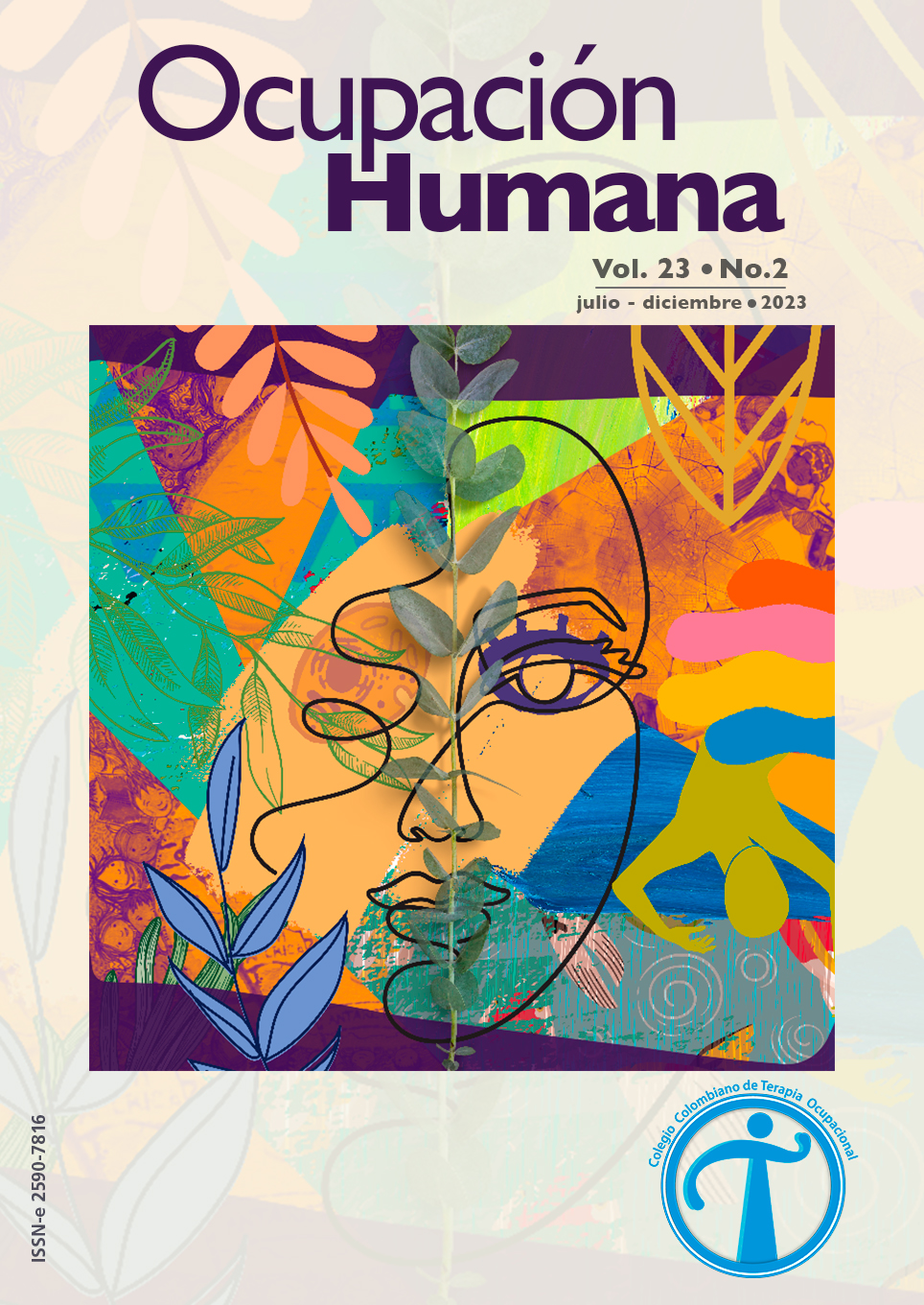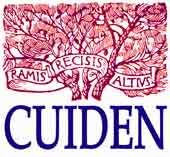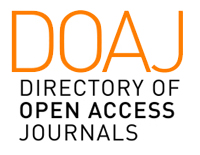Words, concepts, and cultural and historical contexts:
Plurality in Occupational Therapy
DOI:
https://doi.org/10.25214/25907816.1591Abstract
Studies addressing occupation have informed part of the Occupational Therapy field, notably in the Anglo-Saxon context. They are often considered worldwide guidelines. However, there is an increasing debate around locally rooted theoretical-methodological diversity involving particular histories, cultures, and vocabularies. The objective is to present and discuss, from a Brazilian perspective, concepts related to the locus of occupational therapists' action – human activity, occupation, cotidiano (everyday life), and ways of life – as well as those associated with the purposes of professional practice – occupational engagement, social insertion/inclusion, emancipation/autonomy, and social participation. It is argued that some of these concepts help centralizing subjects and social life in the occupational-therapeutic activites. In turn, Occupational Science has developed research on the relevance of the social aspect to its framework. Therefore, the possibility of dialogues between Occupational Therapy and Occupational Science in the composition of the scientific field of the area is discussed. It is argued that there is a need to recognize the plurality of current vocabularies, histories and cultures, including re-discussing the concept of occupation. The aim is to contribute with horizontal dialogues, expanding the production of knowledge and valuing different theoretical and practical perspectives that inform Occupational Therapy.
Downloads
References
American Occupational Therapy Association [AOTA]. (2002). Occupational therapy practice framework: Domain and process. American Journal of Occupational Therapy, 56, 609–639.
Barros, D. D., Ghirardi, M. I. G. & Lopes, R. E. (1999). Terapia ocupacional e sociedade. Revista de Terapia Ocupacional da Universidade de São Paulo, 10 (2/3), 71-76.
Barros, D. D., Ghirardi, M. I. G. & Lopes, R. E. (2002). Terapia ocupacional social. Revista de Terapia Ocupacional da Universidade de São Paulo, 13(3), 95-103. https://doi.org/10.11606/issn.2238-6149.v13i3p95-103
Barros, D. D., Ghirardi, M. I. G. & Lopes, R. E. (2007). Terapia ocupacional social: una perspectiva sociohistórica. In F. Kronenberg, S. S. Algado e N. Pollard (eds.), Terapia ocupacional sin fronteras: aprendiendo del espíritu de supervivientes (pp. 141 -153). Médica Panamericana.
Barros, J. D’A. (2016). Os conceitos: Seus usos nas ciências humanas. Editora Vozes.
Barros, J. D’A. (2021). O uso dos conceitos - uma abordagem interdisciplinar. Editora Vozes.
Bastos, P. N. (2020). Dialética do engajamento: uma contribuição crítica ao conceito. MATRIZes, 14(1), 193-220. https://doi.org/10.11606/issn.1982-8160.v14i1p193-220
Bezerra, W. C., Lopes, R. E. & Basso, A. C. S. (2022). As estruturas da vida cotidiana e a terapia ocupacional: tensionando limites e possibilidades no/do exercício profissional. Cadernos Brasileiros de Terapia Ocupacional, 30, e3031. https://doi.org/10.1590/2526-8910.ctoEN22983031
Black, M. H., Milbourn, B., Desjardins, K., Sylvester, V., Parrant, K. & Buchanan, A. (2019). Understanding the meaning and use of occupational engagement: Findings from a scoping review. British Journal of Occupational Therapy, 82(5), 272–287. https://doi.org/10.1177/0308022618821580
Bourdieu, P. (1993). Sociology in question (Theory, Culture & Society, Vol. 18). Sage.
Calhoun, A. D. (2021) The development and future of occupational science: A budding occupational scientist’s reflections and assertions about the discipline, Journal of Occupational Science, 28:2, 193-207. https://doi.org/10.1080/14427591.2020.1801492
Castel, R. (2003). From manual workers to wage laborers: Transformation of the social question (R. Boyd, trad.). Transaction.
Clark, F. A., Parham, D., Carlson, M. E., Frank, G., Jackson, J., Pierce, D., Wolfe, R. J. & Zemke, R. (1991). Occupational science: Academic innovation in the service of occupational therapy’s future. American Journal of Occupational Therapy, 45(4), 300–310. http://doi.org/10.5014/ajot.45.4.300
Dickie, V., Cutchin, M. P. & Humphry, R. (2006). Occupation as transactional experience: A critique of individualism in occupational science. Journal of Occupational Science, 13(1), 83-93.
Escorel, S. (1999). Exclusão social: em busca de uma categoria. In S. Escorel, Vidas ao léu (pp. 23-81). Fiocruz.
Farias, L. & Laliberte-Rudman, D. (2016) A critical interpretive synthesis of the uptake of critical perspectives in occupational science. Journal of Occupational Science, 23(1), 33-50, https://doi.org/10.1080/14427591.2014.989893
Farias, M. N. & Lopes, R. E. (2021). Circulação cotidiana e uma práxis terapêutico-ocupacional social. Interface - Comunicação, Saúde, Educação, 25, e200717. https://doi.org/10.1590/interface.200717
Fogelberg, D. & Frauwirth, S. (2010). A complexity science approach to occupation: Moving beyond the individual. Journal of Occupational Science, 17(3), 131-139.
Francisco, B. (1988). Terapia Ocupacional. Papirus.
Frank, G. (2012). The 2010 Ruth Zemke Lecture in occupational science occupational Therapy/Occupational Science/Occupational justice: Moral commitments and global assemblages. Journal of Occupational Science, 19(1), 25-35.
Fransen, H., Pollard, N., Kantartzis, S. & Viana-Moldes, I. (2015). Participatory citizenship: Critical perspectives on client-centred occupational therapy. Scandinavian Journal of Occupational Therapy, 22(4), 260-266. https://doi.org/10.3109/11038128.2015.1020338
Fraser, N. (2003). A justiça social na globalização: Redistribuição, reconhecimento e participação. Revista Crítica de Ciências Sociais, 63, 7-20. http://rccs.revues.org/1250
Fraser, N. (2004). Repensando a questão do reconhecimento: superar a substituição e a reificação na política cultural. In C. A. Baldi (org.), Direitos humanos na sociedade cosmopolita (R. Cataldo Costa, trad.). Renovar.
Galheigo, S. M. (2020). Terapia ocupacional, cotidiano e a tessitura da vida: aportes teórico-conceituais para a construção de perspectivas críticas e emancipatórias. Cadernos Brasileiros de Terapia Ocupacional, 28(1), 5-25. https://doi.org/10.4322/2526-8910.ctoAO2590
Gallie, D., Paugam, S. & Jacobs, S. (2003). Unemployment, poverty and social isolation: Is there a vicious circle of social exclusion? European Societies, 5(1), 1-32, https://doi.org/10.1080/1461669032000057668
Gerlach, A. J., Teachman, G., Laliberte-Rudman, D., Aldrich, R. & Huot, S. (2018). Expanding beyond individualism: Engaging critical perspectives on occupation. Scandinavian Journal of Occupational Therapy, 25(1), 35-43. https://doi.org/10.1080/11038128.2017.1327616
Goffman, E. (1961). Asylums: Essays on the social situation of mental patients and other inmates. Anchor Books Doubleday & Company.
Guajardo, A., Kronenberg, F. & Ramugondo, E. L. (2015). Southern occupational therapies: emerging identities and practices. South African Journal of Occupational Therapy, 45(1), 3-10. http://dx.doi.org/10.17159/2310-3833/2015/v45no1a2
Guerra, I. (1993). Modos de vida: novos percursos e novos conceitos. Sociologia - Problemas e Práticas, 3, 59-74.
Gupta, J. & Taff, S. D. (2015). The illusion of client-centred practice. Scandinavian Journal of Occupational Therapy, 22(4), 244-251. https://doi.org/10.3109/11038128.2015.1020866
Hammel, J., Magasi S., Heinemann, A., Whiteneck, G., Bogner, J. & Rodriguez, E. (2008). What does participation mean? An insider perspective from people with disabilities. Disability & Rehabilitation, 30(19), 1445-1460. https://doi.org/10.1080/09638280701625534
Heller, A. (1984). Everyday life. Broadway House.
Hocking, C. & Wright-St. Clair, V. (2011). Occupational science: Adding value to occupational therapy. New Zealand Journal of Occupational Therapy, 58(1), 29–35.
Kantartzis, S. & Molineux, M. (2017). Collective occupation in public spaces and the construction of the social fabric. Canadian Journal of Occupational Therapy, 84(3), 168–177. http://doi.org/10.1177/0008417417701936
Kennedy, J. & Davis, J. A. (2017). Clarifying the construct of occupational engagement for occupational therapy practice. OTJR: Occupation, Participation and Health, 37(2), 98–108. https://doi.org/10.1177/1539449216688201
Kielhofner, G. (2008). Model of human occupation: Theory and application (5th Edition). Williams & Wilkins.
Kinsella, E. A. & Whiteford, G. E. (2009). Knowledge generation and utilisation in occupational therapy: Towards epistemic reflexivity. Australian Occupational Therapy Journal, 56(4), 249-258. https://doi.org/10.1111/j.1440-1630.2007.00726.x
Laliberte-Rudman, D. (2013). Enacting the critical potential of occupational science: Problematizing the ‘individualizing of occupation.’ Journal of Occupational Science, 20(4), 298–313. https://doi.org/10.1080/14427591.2013.803434
Laliberte-Rudman, D. (2018). Occupational therapy and occupational science: building critical and transformative alliances. Cadernos Brasileiros de Terapia Ocupacional, 26(1), 241–249. https://doi.org/10.4322/2526-8910.ctoEN1246
Lewis, H., Dwyer, P., Hodkinson, S. & Waite, L. (2015). Hyper-precarious lives: Migrants, work and forced labour in the Global North. Progress in Human Geography, 39(5), 580–600. https://doi.org/10.1177/0309132514548303
Lima, E. M. F. A. (2020). Atividades, mundo comum e formas de vida: contribuições do pensamento de Hannah Arendt para a terapia ocupacional. Cadernos Brasileiros de Terapia Ocupacional, 28(3), 1037-1050. https://doi.org/10.4322/2526-8910.ctoARF1995
Lobo, E. S. (1992). Caminhos da sociologia no Brasil: modos de vida e experiência. Tempo Sociológico, 4 (1-2), 7-15. http://dx.doi.org/10.1590/ts.v4i1/2.84907
Lopes, R. E. (1990). Currículo mínimo para terapia ocupacional: uma questão técnico-ideológica. Revista de Terapia Ocupacional da Universidade de São Paulo, 1(1), 33-41.
Lopes, R. E. (2021). Citizenship, rights, and social occupational therapy. In R. E. Lopes & A. P. S. Malfitano (eds.), Social occupational therapy: Theoretical and practical designs (pp. 1-10). Elsevier.
Lopes, R. E. & Borba, P. L. O. (2022). Em defesa da terapia ocupacional na educação para a inclusão radical. Em R. E. Lopes & P. L. O Borba (org.), Terapia ocupacional, educação e juventudes: Conhecendo práticas e reconhecendo saberes (pp. 33-48). EdUFSCar.
Lopes, R. E. & Malfitano, A. P. S. (2021). Social occupational therapy: Theoretical and practical designs. Elsevier.
Lopes, R. E. & Malfitano, A. P. S. (Org.) (2023). Terapia ocupacional social: desenhos teóricos e contornos práticos (2a. ed). EdUFSCar.
Lussi, I. A. O. (2020). Emancipação social e terapia ocupacional: aproximações a partir das Epistemologias do Sul e da ecologia de saberes. Cadernos Brasileiros de Terapia Ocupacional, 28(4), 1335-1345. https://doi.org/10.4322/2526-8910.ctoEN2015
Magalhães, L., Farias, L., Rivas-Quarneti, N., Alvarez, L. & Malfitano, A. P. S. (2019). The development of occupational science outside the Anglophone sphere: Enacting global collaboration. Journal of Occupational Science, 26(2), 181–192. https://doi.org/10.1080/14427591.2018.1530133
Magalhães, L. V. & Galheigo, S. M. (2010). Enabling international communication among Brazilian occupational therapists: seeking consensus on occupational terminology. Occupational Therapy International, 17, 113-124.
Malfitano, A. P. S. & Lopes, R. E. (2021). Preface. In R. E Lopes & A. P. S. Malfitano (org.). Social occupational therapy: Theoretical and practical designs (pp.13-21). Elsevier.
Malfitano, A. P. S., Whiteford, G. & Molineux, M. (2021). Transcending the individual: the promise and potential of collectivist approaches in occupational therapy. Scandinavian Journal of Occupational Therapy, 28(3), 188-200. https://doi.org/10.1080/11038128.2019.1693627
Marcolino, T. Q., Benetton, J., Cestari, L. M. Q. & Mello, A. C. C. (2020). Diálogos com Benetton e Latour: possibilidades de compreensão da inserção social. Cadernos Brasileiros de Terapia Ocupacional, 28(4), 1322-1334. https://doi.org/10.4322/2526-8910.ctoARF2032
Matsukura, T. S. & Salles, M. (orgs). (2016). Cotidiano, atividade humana e ocupação. EduFSCar.
Melo, K. M. M. (2021). Entre rupturas e permanências: modos de vida e estratégias de enfrentamento à vida nas margens no cotidiano de pessoas trans [Teses doutoral, Universidade Federal de São Carlos]. Repositório UFSCar. https://repositorio.ufscar.br/handle/ufscar/15263
Melo, K. M. M. & Lopes, R. E. (2023). Modos de vida, experiências trans e enfrentamentos: considerações para a ação técnica em terapia ocupacional social. Cadernos Brasileiros de Terapia Ocupacional. No prelo.
Morris, K. & Cox, D. (2017). Developing a descriptive framework for “occupational engagement”. Journal of Occupational Science, 24(2), 152-164. https://doi.org/10.1080/14427591.2017.1319292
Nascimento, B. A. (1990). O mito da atividade terapêutica. Revista de Terapia Ocupacional da Universidade de São Paulo, 1(1), 17-21.
Nascimento, B. A. (1991). Loucura, trabalho e ordem: o uso do trabalho em instituições psiquiátricas [Teses de mestrado]. Pontifícia Universidade Católica de São Paulo.
Oliveira, L. (1997). Os excluídos “existem”? Notas sobre a elaboração de um novo conceito. Revista Brasileira de Ciências Sociais, 12(33), 49-61.
Pan, L. C., Borba, P. L. O. & Lopes, R. E. (2022). Recursos e metodologias para o trabalho de terapeutas ocupacionais na e em relação com a escola pública. In R. E. Lopes & P. L. O. Borba (org.), Terapia ocupacional, educação e juventudes: Conhecendo Práticas e Reconhecendo Saberes (pp. 97-126). EdUFSCar.
Pereira, R. B. (2017). Towards inclusive occupational therapy: Introducing the CORE approach for inclusive and occupation-focused practice. Australian Occupational Therapy Journal, 64(6), 429–435. https://doi.org/10.111/1440-1630/12394
Pierce, D. (2014). Occupational science for occupational therapy: A look into the future. In D. Pierce, (Org.), Occupational science for occupational therapy (pp. 347–350). Slack.
Pollard, N., Sakellariou, D. & Lawson-Porter, A. (2010). Will occupational science facilitate or divide the practice of occupational therapy? International Journal of Therapy & Rehabilitation, 17(1), 40–47. http://doi.org/10.12968/ijtr.2010.17.1.45992
Richards, L. & Galvaan, R. (2018). Developing a socially transformative focus in occupational therapy: insights from South African practice. South African Journal of Occupational Therapy, 48(1), 3-8. https://dx.doi.org/10.17159/2310-3833/2017/vol48n1a2
Safatle, V. (2019). Crítica da autonomia: liberdade como heteronomia sem servidão. Discurso, 49(2), 21–41. https://doi.org/10.11606/issn.2318-8863.discurso.2019.165473
Salles, M. M. & Matsukura, T. S. (2013). Estudo de revisão sistemática sobre o uso do conceito de cotidiano no campo da terapia ocupacional no Brasil. Cadernos de Terapia Ocupacional da UFSCar, 21(2), 265-273. https://doi.org/10.4322/cto.2013.028
Santos, B. S. (2005). Reinventing social emancipation: Toward new manifestos. In B. S. Santos (org.), Democratizing democracy. Beyond the liberal democratic canon (pp. xvii-xxiii). Verso.
Silva, A. C. C. & Oliver, F. C. (2021). Social participation in occupational therapy: is it possible to establish a consensus? Australian Occupational Therapy Journal, 68(6), 535-545. https://doi.org/10.1111/1440-1630.12763
Silva, C. R. (2019). Atividades humanas & terapia ocupacional: saber-fazer, cultura, política e outras resistências. Hucitec.
Soares, L. B. T. (1991). Terapia ocupacional: Lógica do capital ou do trabalho? Hucitec.
Souza, J. R. B., Borba, P. L. O., Pan, L. C. & Lopes, R. E. (2021). Inclusion and democracy in education: an exploration of concepts and ideas for occupational therapists. World Federation of Occupational Therapists Bulletin, 77(2), 107-113. http://dx.doi.org/10.1080/14473828.2021.1921929
Taff, S. D. & Putnam, L. (2022). Northern philosophies and professional neocolonialism in occupational therapy: a historical review and critique. Cadernos Brasileiros de Terapia Ocupacional, 30, e2986. https://doi.org/10.1590/2526-8910.ctoAO22642986.
Von Poellnitz, J. C. & Silva, C. R. (2019). Sobre a linguagem: sentidos para uso de termos e conceitos. In C. R. Silva (ed.), Atividades humanas & terapia ocupacional: saber-fazer, cultura, política e outras resistências (pp. 80-96). Hucitec.
Whiteford, G., Townsend, E. & Hocking, C. (2000). Reflections on a renaissance of occupation. Canadian Journal of Occupational Therapy, 67(1), 61–69. https://doi.org/10.1177/000841740006700109
Willard, H. S. & Spackman, C. S. (1973). Terapéutica ocupacional. Editorial JIMS.
Wirth, L. (1938). Urbanism as a way of life. American Journal of Sociology, 44(1), 1–24.
World Federation of Occupational Therapists [WFOT]. (2012). Statement on occupational therapy, 2012. WFOT. https://www.wfot.org/about/about-occupational-therapy
Published
How to Cite
Issue
Section
License
Copyright (c) 2023 Human Occupation Journal

This work is licensed under a Creative Commons Attribution-NonCommercial-ShareAlike 4.0 International License.

| Article metrics | |
|---|---|
| Abstract views | |
| Galley vies | |
| PDF Views | |
| HTML views | |
| Other views | |











